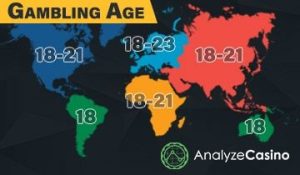
Gambling can be an enjoyable pastime for many people, but for some, it can develop into a habit that is difficult to control. When gambling starts to negatively impact your life, self-exclusion programs can be an effective tool to help you regain control of your gambling habits. In this article, we will explore what self-exclusion programs are and how they can benefit individuals struggling with gambling addiction.
What is Self-Exclusion?
Self-exclusion is a voluntary program offered by gambling establishments, both online and offline, that allows individuals to ban themselves from participating in any form of gambling for a set period. This period can range from a few months to several years, depending on the individual’s preference and severity of addiction. Self-exclusion programs are designed to create a barrier between the individual and their gambling behavior, providing a much-needed break and an opportunity for recovery.
How Does Self-Exclusion Work?
The process of self-exclusion varies depending on the location and platform you choose. In most cases, you will be required to fill out an application form that includes personal details, such as your name, address, and identification information. Once the form is submitted, your request will be processed, and you will be officially enrolled in the self-exclusion program.
Once enrolled, gambling establishments will take necessary measures to ensure that you are prevented from accessing their facilities or websites during the self-exclusion period. This may involve blocking your online gambling account, denying you entry into physical casinos, or refusing to accept your bets. Additionally, you may be added to a database or a list of self-excluded individuals that is shared among gambling establishments, further enhancing the effectiveness of the program.
Benefits of Self-Exclusion Programs
Self-exclusion programs offer several benefits for individuals struggling with gambling addiction:
Time for Reflection: By voluntarily excluding yourself from gambling, you can take a step back and reflect on your behaviors and the impact they have had on your life. This time away gives you an opportunity to reevaluate your relationship with gambling and make positive changes, if necessary.
Reduced Temptations: With restricted access to gambling options, self-exclusion programs significantly reduce the temptation to gamble. By eliminating this constant reminder, it becomes easier to resist the urge to engage in unhealthy behaviors.
Support for Recovery: Self-exclusion programs often provide additional resources and support, such as counseling services or helplines, to assist individuals in their recovery journey. These resources can prove invaluable in overcoming addiction and establishing healthier habits.
Regaining Control: Self-exclusion programs empower individuals by allowing them to take control of their gambling habits. The act of voluntarily enrolling in the program demonstrates a commitment to change and serves as a crucial first step towards recovery.
Limitations and Considerations
While self-exclusion programs can be highly effective, it is essential to acknowledge their limitations:
Self-Discipline: Self-exclusion requires a high degree of self-discipline to ensure compliance. Individuals must commit to their decision and avoid seeking ways to circumvent the program.
Alternative Options: Self-exclusion programs may not be suitable for everyone. Some individuals may benefit more from seeking professional help through therapy or support groups.
Ongoing Support: Self-exclusion should be accompanied by ongoing support. It is crucial to address any underlying issues or triggers that contribute to gambling addiction, and self-exclusion alone may not be sufficient in achieving long-term recovery.
Conclusion
Self-exclusion programs can be a valuable tool for individuals struggling with gambling addiction. By taking control of their gambling habits through self-exclusion, individuals are given the necessary time and space to reflect, resist temptations, and seek support for recovery. While self-exclusion programs have limitations, they remain an effective and accessible option to help individuals regain control of their lives and establish a healthier relationship with gambling.

